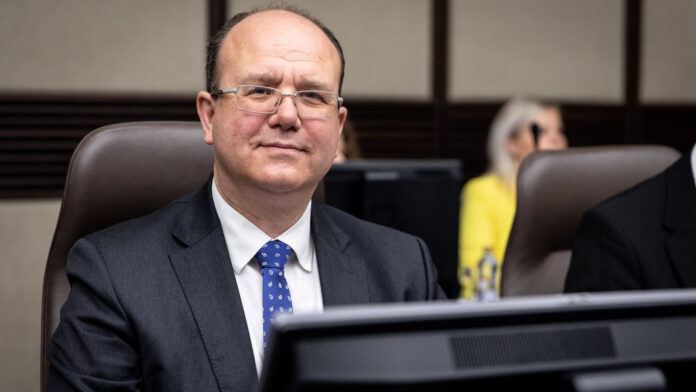Slovakia’s former Foreign Minister Miroslav Wlachovský has sharply criticised Prime Minister Robert Fico’s foreign policy, accusing it of isolating the country from its Western allies while fostering closer ties with authoritarian regimes. He revealed that experienced diplomats are being replaced by graduates from Moscow State Institute of International Relations (MGIMO) and Saint Petersburg State University—institutions long associated with Russian intelligence networks and state structures. Wlachovský warns that these decisions, coupled with Fico’s rhetoric and actions, are severely damaging Slovakia’s international credibility.
Under Fico’s leadership, Slovakia’s foreign policy has drawn widespread criticism for veering away from its Western alliances. According to Wlachovský, trust—an essential pillar of diplomacy—has been undermined by the government’s combative rhetoric and inconsistent messaging. The most alarming development, he says, is the Ministry of Foreign Affairs’ recent overhaul, which has seen experienced diplomats ousted and replaced with graduates from Russian institutions like MGIMO and Saint Petersburg State Universit
These institutions are renowned for cultivating professionals for Russian foreign policy and intelligence services, raising concerns about the ideological shift in Slovakia’s diplomatic corps. “We are losing professionals who have dedicated decades to building Slovakia’s position in NATO and the EU,” Wlachovský warned, noting that their replacements lack comparable expertise and independence.
The personnel changes reflect a broader alignment with authoritarian regimes. Wlachovský highlighted Fico’s closer ties to Moscow and Beijing, contrasting Slovakia’s declining engagement with EU and NATO allies. “It feels like we’re under quarantine,” he remarked, noting the stark decrease in high-level diplomatic visits and Slovakia’s exclusion from informal EU forums.
Isolation, Credibility, and Consequences
Fico’s foreign policy has deepened Slovakia’s isolation, Wlachovský argues, not only by estranging allies but by undermining its credibility. The prime minister’s failure to visit Kyiv—unlike even Hungary’s Viktor Orbán—has sent a troubling signal about Slovakia’s support for Ukraine during its ongoing conflict with Russia. Wlachovský also pointed to Fico’s rhetoric, including claims that Ukrainian President Volodymyr Zelenskyy wants to prolong the war, as inflammatory and harmful.
The decision to participate in World War II commemorations in Moscow in 2025 further solidifies Slovakia’s alignment with Russia. Wlachovský called this move “morally repugnant,” describing it as a symbolic endorsement of an aggressor state. “We’ll find ourselves standing on a platform watching Russian military hardware that is being used to kill civilians in Ukraine,” he said.
The opacity surrounding Slovakia’s diplomatic actions further compounds the problem. Wlachovský criticised Fico’s visit to China, which excluded journalists and produced only vague agreements. The lack of transparency, he argued, deprives Slovak citizens of the accountability they deserve from their leaders.
In Wlachovský’s assessment, these developments signify a dangerous shift in Slovakia’s foreign policy direction. The dismissal of veteran diplomats and the growing influence of Moscow-linked personnel mark a retreat from democratic values and a failure of leadership that risks isolating Slovakia from the Western institutions it once championed.
Source: Miro Kern | Denník N








